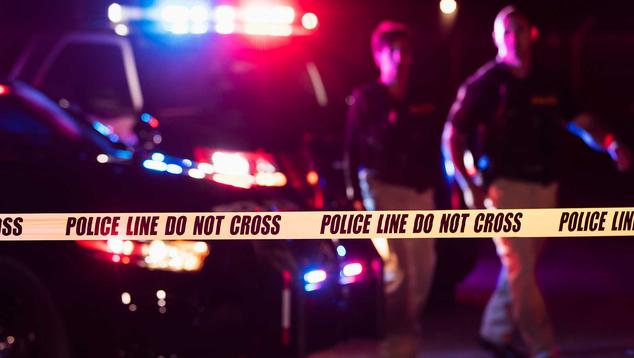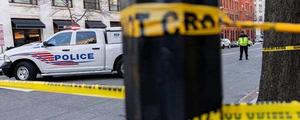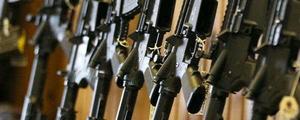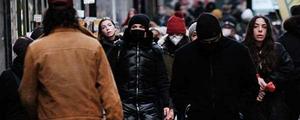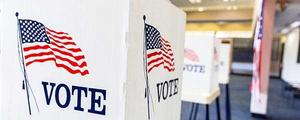Story Highlights
- 56% say there is more crime where they live, up five points
- 78% think there is more crime in the U.S.
- Worry about being victim of six crimes up significantly from 2021
WASHINGTON, D.C. -- Americans are more likely now than at any time over the past five decades to say there is more crime in their local area than there was a year ago. The 56% of U.S. adults who report an increase in crime where they live marks a five-percentage-point uptick since last year and is the highest by two points in Gallup's trend dating back to 1972.
Public perceptions of an increase in crime at the national level have also edged up since last year, as 78% say there is now more crime in the U.S. This is tied with the 2020 measure. The record high was 89% in 1992, when crime rates soared in the U.S.
Americans have consistently been more likely to say crime is worsening in the U.S. than in their local area since Gallup began simultaneously tracking Americans' impressions of both crime levels. The latest findings, from an Oct. 3-20 poll, are well above the 44% average for local crime and 67% average for national crime since 1989.
This year's record-high perception of a rise in local crime builds upon last year's sharp increase on the measure. In addition to the 56% who say there is more local crime this year, 28% think there is less and 14% think the level has stayed the same.
On the national front, beyond the 78% of Americans who currently think there is more crime in the U.S., 13% say there is less and 7% think there is about the same amount.
The low points for both trends were recorded in 2001 after the 9/11 terrorist attacks in the U.S. resulted in a rally effect among Americans and the large loss of life at the hands of terrorists overshadowed perceptions of local and national crime.
In Great Numbers, Republicans Think Crime Is Up Locally, Nationally
As is the case with many perceptions of national conditions, partisanship plays a significant role in shaping Americans' assessments of crime. Since 2000, supporters of the president's party have typically been less likely than those who identify with the opposition party to say that crime has increased. Before that, during both George H.W. Bush's and Bill Clinton's presidencies, partisans held similar perceptions of the crime problem.
Last October, with Joe Biden in the White House and after the FBI released its 2020 crime statistics showing a sharp increase in murders in the U.S., the percentage of Republicans who said there was more local crime increased from 38% to 67%. Independents' perception that local crime was worse also edged up, while Democrats' view was essentially unchanged.
Currently, 73% of Republicans say crime in their area has risen, while 51% of independents and 42% of Democrats say the same.
Perceptions of national crime trends are also influenced by the match between a person's own party identification and the party of the president. After rising slightly last year, Republicans' negative assessment of crime in the nation rose further so that they now nearly unanimously think crime is up nationally. The 95% of Republicans who think there is more national crime is also the highest ever for any party group, by two points.
A majority of Democrats think crime in the U.S. has risen since last year. That outlook is similar to their view in 2021 but slightly better than in the last two years of Donald Trump's presidency, when as many as 75% thought U.S. crime was up. For their part, 74% of independents think there is more crime nationally, similar to the past two years (Trump's last year and Biden's first).
Concerns About Being Victim of Six Crimes Rise to Trend Highs
Gallup has tracked the frequency of personal worry about 10 specific types of violent and property crimes since 2000. Terrorism was added in 2001, and two cybercrimes -- being the victim of identity theft and computer hacking -- were added in 2009 and 2017, respectively.
While none of these crimes engenders more than 41% frequent worry, two register majority-level frequent or occasional worry -- computer hacking (75%) and identity theft (73%). At the other end of the spectrum, Americans worry least about being assaulted or killed by a coworker on the job (9%) or being the victim of terrorism (27%).
Frequent or occasional worry about six of the 13 crimes has risen significantly since last year to trend highs. These include having one's child physically harmed at school, being sexually assaulted, getting mugged, getting murdered, being attacked while driving a car, and having one's home burglarized while they are at home.
Worry about children's safety at school has increased the most, by 13 points -- likely a result of recent high-profile school shootings, especially the Uvalde, Texas, incident in May.
For those crimes eliciting heightened worry this year, the increases are generally seen across most subgroups. Notably, however, city residents' concern about being mugged, murdered or sexually assaulted or having their car stolen has risen more than their suburban and rural counterparts'.
Bottom Line
There is no shortage of issues weighing on voters' minds during this year's midterm elections. As the U.S. continues to suffer from high inflation, the economy is playing a central role in the campaign. Yet, crime is also front and center in many campaigns around the country as candidates debate high crime rates, gun policy, bail reform and policing. Although crime is not one of the top issues Americans cite as the most important problem in the U.S., their belief that crime in their local area has risen in the past year has hit a new high in Gallup's trend.
To stay up to date with the latest Gallup News insights and updates, follow us on Twitter.
Learn more about how the Gallup Poll Social Series works.
